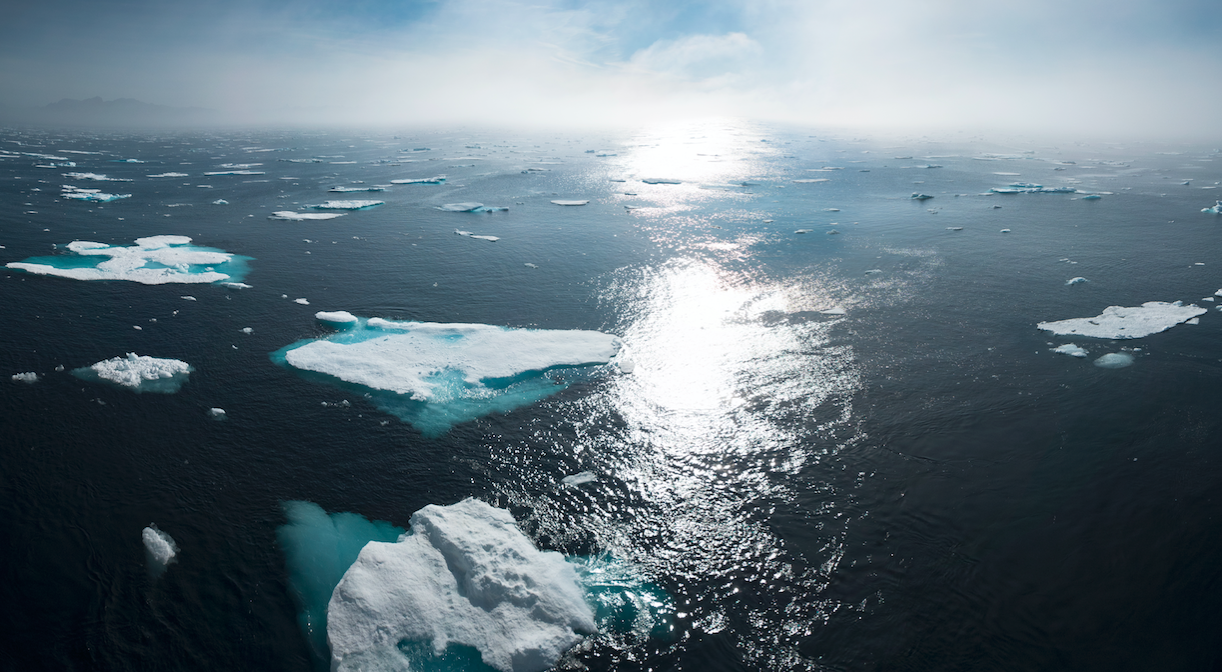The Sound of Climate Disruption
March 12, 2017
By: Michael Stocker
It has been known for quite some time that excessive anthropogenic carbon dioxide is modifying ocean chemistry, increasing acidity, and compromising shell growth in calciferous sea life. The effects of this have been confirmed in sea snails, corals, and oysters, but also in marine phytoplankton – the organisms that provide a significant share of the oxygen we breathe.
In these alarming times I don’t want to increase our collective stress levels any more, except to say that turning our backs on this additional cost of a fossil-fueled civilization is not a wise survival strategy. But there is an acoustical component of a warming planet that I’d like to explore.
In 2008 researchers determined that changes in ocean chemistry also had an effect on sound propagation – with the concern that noise would not be so readily absorbed by a more acidic ocean. This spawned a concern that increasing ocean noise introduced by human operations would be even noisier.
To some extent this is true, but in the already complex array of anthropogenic impacts on marine habitat, this sound propagation component was not really at the top of the concern list. Although there is another acoustical component of global warming that will have unanticipated and potentially profound acoustical impacts in the polar regions of our planet.
Acoustic Ecologist Jim Cummings recently sent us an article which details the acoustical impacts of increased freshwater melt in the Beaufort Sea. Due to the high rate of ice melt there are now “sound channels” in the Arctic created by interfaces between water with differing densities. There are two factors affecting water density in the ocean; salinity and temperature, with freshwater being less dense than saltwater (because doesn’t contain salt) and warm water being denser than cold (due to thermal expansion).
The differences in density between the salt water and the freshwater, as well as warmer and colder water is creating a sound channel in the Beaufort Sea that readily conducts sounds (and noise) over much greater distances. The initial research indicates that sound caught in this channel can transmit four times farther than it did in the 1970’s – when the impacts of global warming were not as pronounced.
How this impacts marine life remains to be determined. The Navy is exploring how this will effect sonar transmission. But this sound channel will also transmit shipping and other industrial noise over longer distances. This will particularly impact arctic marine life as more ice-free Arctic ocean becomes available for human activities it will also increase the sources of that noise.
This all could be a serious problem for Arctic marine animals, who have evolved an extensive repertoire of acoustical adaptations to a world that is dark for many months of the year, and until recently has also been thick with ice. Having to compete with ever more noises coming at them from greater distances does not bode well for these highly adapted acoustic communicators.










Article states ‘and warm water being denser than cold (due to thermal expansion)’. A typo?, logically it seems to me that cold water would be denser than warmer water.
Yes, you are absolutely right that Global warning threatens the health of humans and other living beings in our planet. It creates smog and acid rain, causes cancer and respiratory diseases, reduces the ozone layer atmosphere and contributes to global warming https://www.reecoupons.com/categories/black-friday .It affects kids more than adults due to higher concentrations of polluted air in their systems per body size.
Excess amount of CFC creates more environmental issues. Global warming is a threat to the lives in Earth.
https://sites.google.com/site/bestessaywritingservicereview/ This article provides some valuable information in a convincing manner.
Global warming is the biggest issue in the world and it is very dangers that too much anthropogenic carbon dioxide is altering ocean chemistry, cumulative acidity, and co-operating shell evolution in calciferous sea life. Thanks for sharing few information and facts about Climate Disruption and the image explanations which can be helpful for the students who are researching on environment and ocean history and taking guidance from the Quality Dissertation – http://www.qualitydissertation.co.uk for writing their dissertation with proper guidance and topics.
Most of the people are aware about the evaluation terminology from global warming to global climate disruption. Climate disruption, produced by the boiling of vestige firewood such as petroleum, oil, and natural gas, which are carry serious risk to our environment, health and economy and make whether harmful. And these post for the sound of climate disruption is very interesting and worth to share with professional personal statement writers in the UK who are providing personal statement writing services at – http://www.personalstatementfolks.co.uk/. I am also working with them and helping students by sharing such kind of information which is helpful them to complete their graduation.